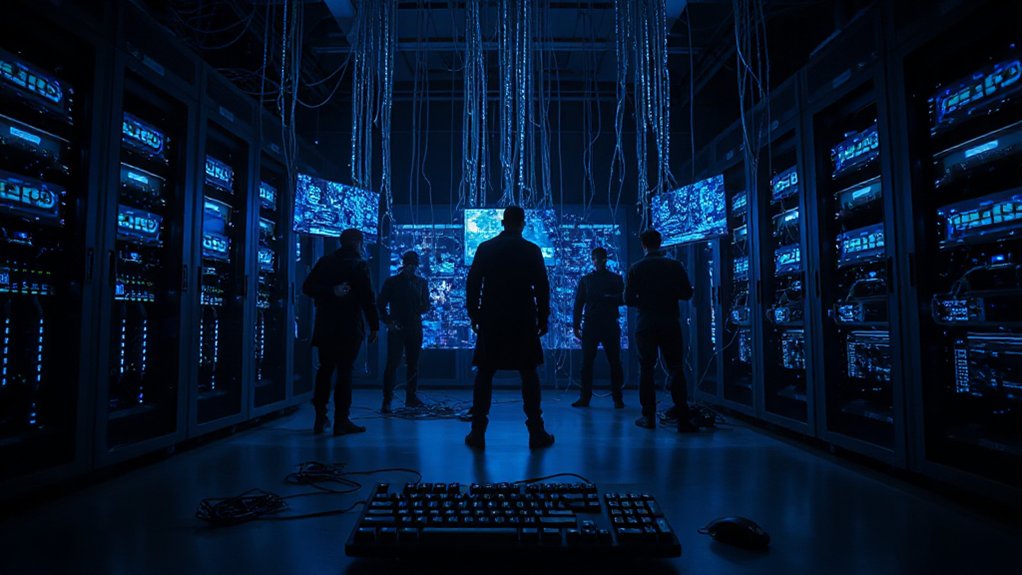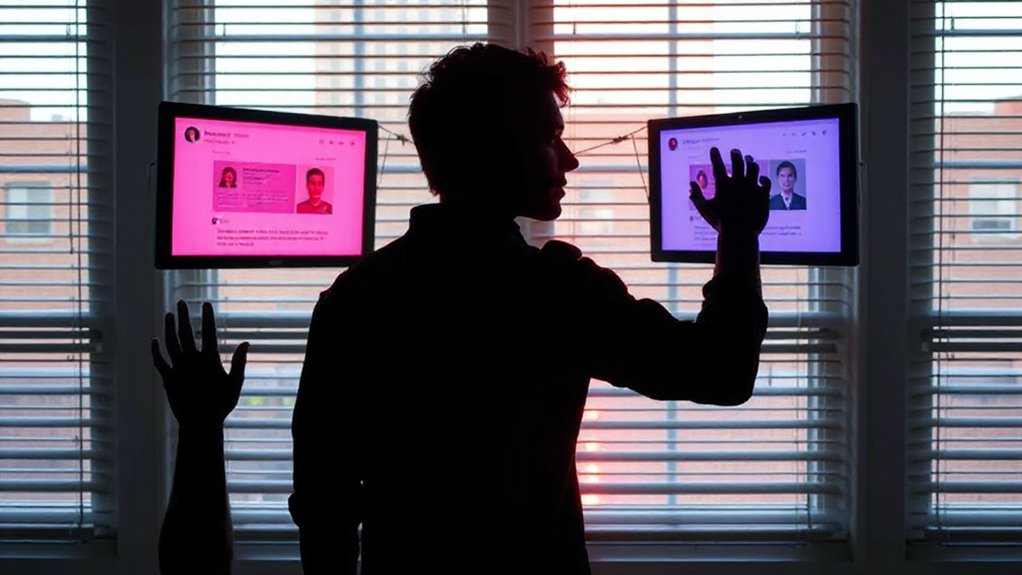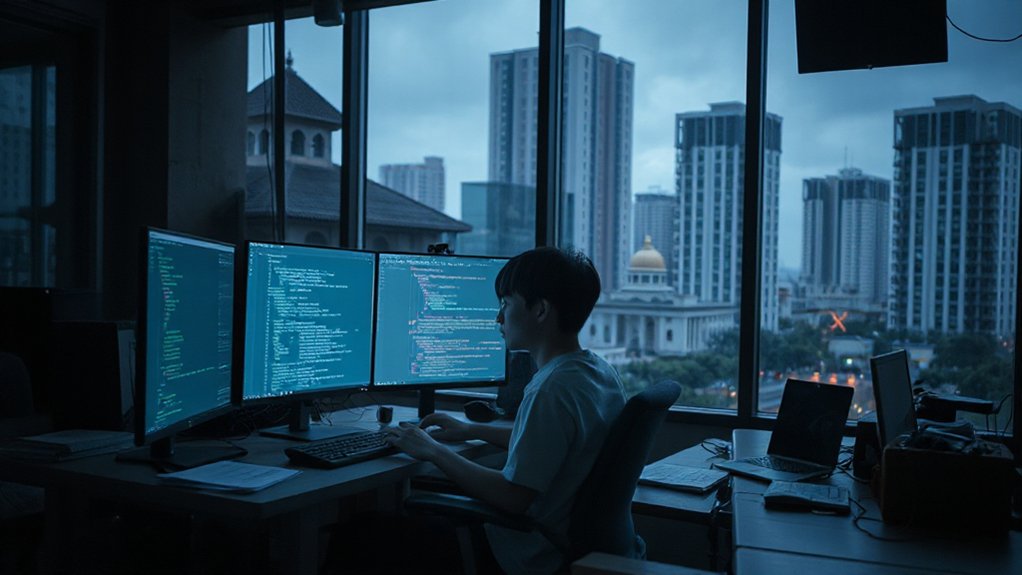Five major security risks threaten users of ChatGPT as the popular AI tool becomes a target for cybercriminals. Recent reports show over 225,000 OpenAI login credentials have been exposed on the dark web. These stolen accounts let hackers view private chat histories that might contain sensitive information.
When businesses use ChatGPT without proper monitoring, they create security blind spots that attackers can exploit. One growing problem is called “Shadow ChatGPT,” where employees use the AI tool without company approval. Nearly 64% of organizations face this issue, making it hard for security teams to protect company data.
Shadow ChatGPT creates dangerous security blind spots when employees use AI without approval—64% of companies now face this growing threat.
When users share confidential information with ChatGPT, this data could be stolen during transmission or extracted through vulnerabilities in the system. Studies show approximately 11% of inputs contain sensitive information such as PII, PHI, and proprietary source code. Prompt injection attacks pose another serious threat. Hackers can craft special inputs that make ChatGPT bypass safety measures and reveal restricted information.
These attacks are particularly difficult to detect and prevent due to the endless combinations of possible inputs. Some attackers can even execute these attacks without the user knowing. Data poisoning represents a more subtle danger. By corrupting the training data, attackers can make ChatGPT provide biased or misleading answers. AI systems can perpetuate harmful bias against women and minorities when trained on flawed datasets.
These effects can persist for a long time and might cause the AI to downplay security threats or give incorrect information during emergencies. ChatGPT has also made social engineering more dangerous. Criminals now use the tool to create convincing phishing emails with perfect grammar and natural language.
These AI-generated attacks contribute to 74% of data breaches through impersonation tactics. Some attackers even create deepfake voices to trick people into sharing sensitive information. Technical vulnerabilities in ChatGPT’s infrastructure create additional risks.
The CVE-2024-27564 vulnerability affects 35% of organizations using the system. Security researchers have found multiple weaknesses that allow attackers to steal private data and bypass safety features. Strong user authentication with multi-factor verification can significantly reduce the risk of unauthorized access to ChatGPT accounts. As ChatGPT becomes more widespread, these security concerns will likely grow unless proper protections are put in place.
References
- https://www.metomic.io/resource-centre/is-chatgpt-a-security-risk-to-your-business
- https://www.reco.ai/learn/chatgpt-security-risk
- https://www.sentinelone.com/cybersecurity-101/data-and-ai/chatgpt-security-risks/
- https://www.wiz.io/academy/chatgpt-security
- https://www.tenable.com/blog/hackedgpt-novel-ai-vulnerabilities-open-the-door-for-private-data-leakage
- https://www.exabeam.com/explainers/ai-cyber-security/chatgpt-in-the-organization-top-security-risks-and-mitigations/
- https://thehackernews.com/2025/11/researchers-find-chatgpt.html
- https://www.darkreading.com/application-security/multiple-chatgpt-security-bugs-rampant-data-theft
- https://www.ibm.com/think/insights/chatgpt-risks









